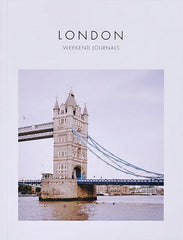Real Review #15
Real Review is a contemporary culture magazine founded in 2016 as an an ad-free, independent outlet that aims to make sense of our ever-changing zeitgeist.
In this issue;
There are two popular ideas about the meaning of the absurd.The first argues that absurdity occurs when tragedy is so acute it flips into comedy as when extreme physical pain is experienced as numbness). The absurd is the humour of suffering.
Another idea is that absurdity occurs when material reality overwhelms social reality. If we look too closely at a thing, and really see it for what it is, such hardcore clarity makes us stop believing in symbolic meanings: a bombed-out street is no longer property (destroying the fantasy of real estate); a lazy police officer is just a man in costume, no longer an agent of justice (destroying the myth of rule of law).
In certain lights (naivety and sincerity), the emperor's clothes simply vanish.He becomes a figure of ridicule. Absurdity rejects all authority.
It isn't the representation of violence in the Gaza Strip that is so disturbing; it is the absence of representation. The grief and despair of a child is penetratingly real. The extreme realism of these events has now driven a wedge between our realities, material and social.
The scale and speed of this suffering has destroyed our ability to sustain any belief in the symbolic values of "the international community" and "human rights".
We can no longer even pretend these ideas correlate to any form of reality. This issue of Real Review is dedicated to the current mood, the Phantom of Liberty.
What has been allowed to occur in Gaza has not only exposed the complicity of Western leaders, but fundamentally altered the collective understanding of what a state is and why they exist. The character of the nation-state is bare: malevolent, irrelevant and belligerent; monstrous perversions of the human spirit. This is bad news for those in power, whose incompetence this century has already left their rule on shaky ground.
There is not currently any obvious path to reconstructing a popular faith in social, political or economic institutions. While it might not always feel like it today, the unwinding of colonial modernity is underway and accelerating.
Before October, the mood had been charting another path; some traces of this trajectory remain within our new present. Pessimism and optimism describe probabilities. Hope is pure desire.
While cynical irony is falling out of fashion, we have no longer any reasons to be optimistic. And yet, hope is resurgent - a hope against hope, a hope in the absence of any justification for hope. We are filled with pessimistic hope, for a better past and a better future.







